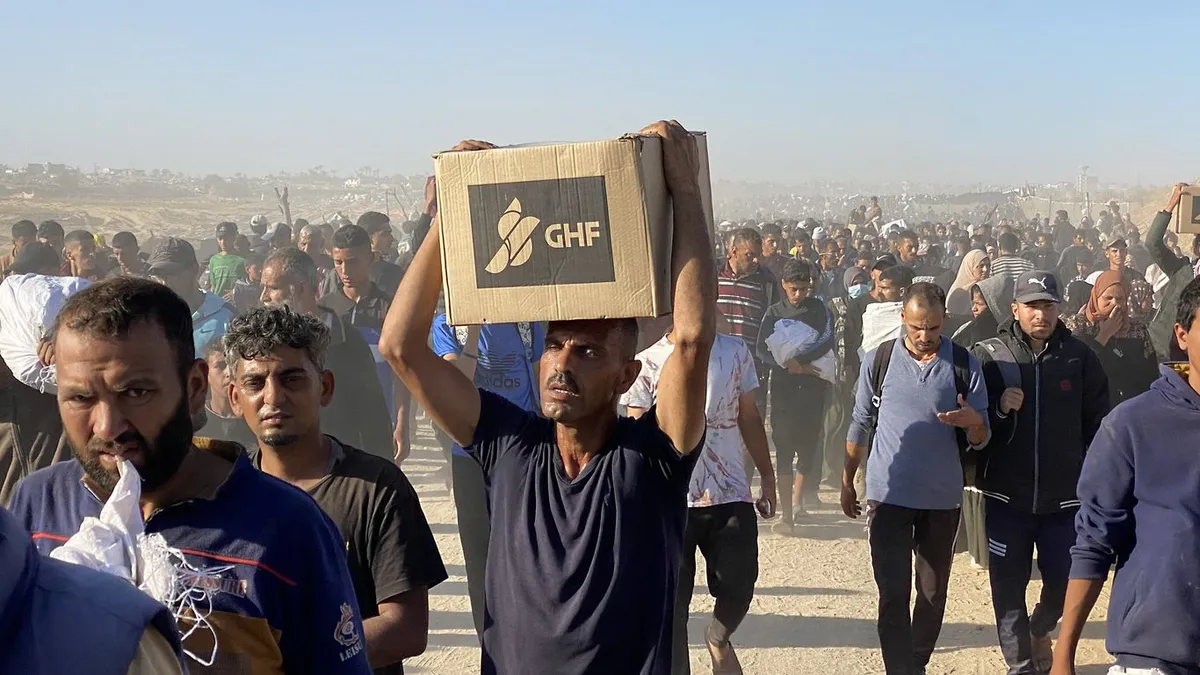
Recent reports indicate a devastating escalation in violence as Israeli troops opened fire on Palestinian civilians approaching newly established aid centers in Gaza. This incident has resulted in at least 27 deaths and has raised significant concerns about the safety of humanitarian efforts in the region. According to various health officials, the fatalities occurred near a Gaza aid distribution point, marking the third consecutive day of violent confrontations.
On the ground, eyewitness accounts suggest that as civilians gathered to receive much-needed assistance, Israeli soldiers began shooting into the crowd. Reports from the New York Times and other major news outlets confirm that dozens of Palestinians have been killed, igniting a humanitarian crisis that is worsening by the day. The ongoing conflict has made it increasingly challenging to deliver aid effectively, with many fearing for their lives while attempting to access basic supplies.
In light of these tragic events, the humanitarian landscape in Gaza is becoming increasingly precarious. A prominent U.S. consulting firm has decided to withdraw from its humanitarian aid efforts in Gaza, citing the escalating violence and criticism surrounding the safety of its operations. This withdrawal highlights a significant challenge for aid organizations striving to provide relief to those affected by the ongoing conflict.
As the situation continues to unfold, reports indicate that at least 23 individuals have died directly due to gunfire from the IDF (Israel Defense Forces) near the aid site in Jabalya. This incident not only underscores the urgent need for a ceasefire but also raises critical questions about the protection of civilians in conflict zones. The humanitarian crisis in Gaza is reaching alarming levels, with the international community closely monitoring the violence and its implications for the region.
The recent shooting incident near Gaza's aid distribution points serves as a stark reminder of the fragile state of peace in the region. With a growing number of casualties and increasing challenges for humanitarian aid efforts, it is imperative that all parties involved take immediate action to ensure the safety and well-being of civilians. As the situation develops, the need for a sustainable solution to the ongoing conflict has never been more urgent.